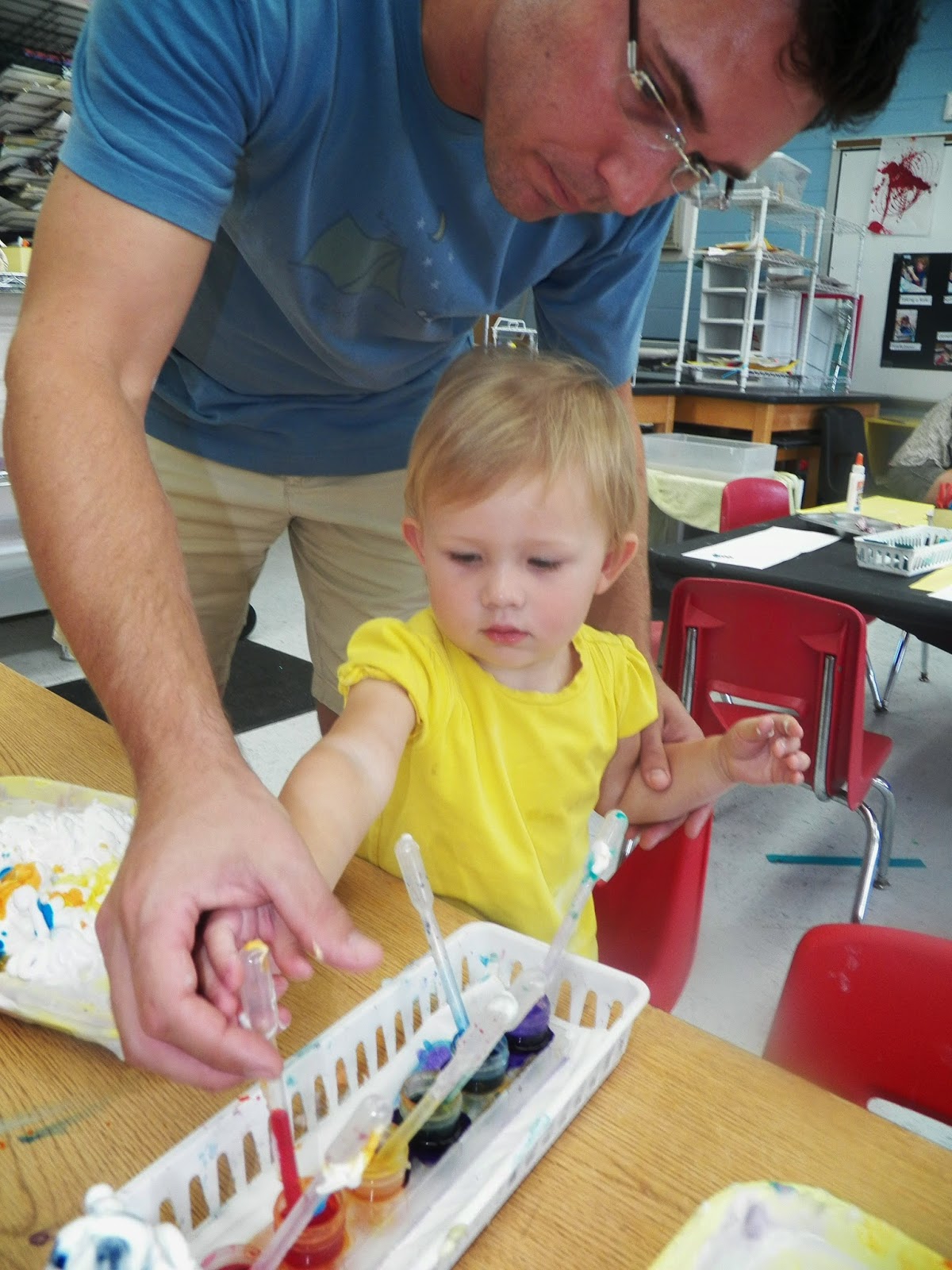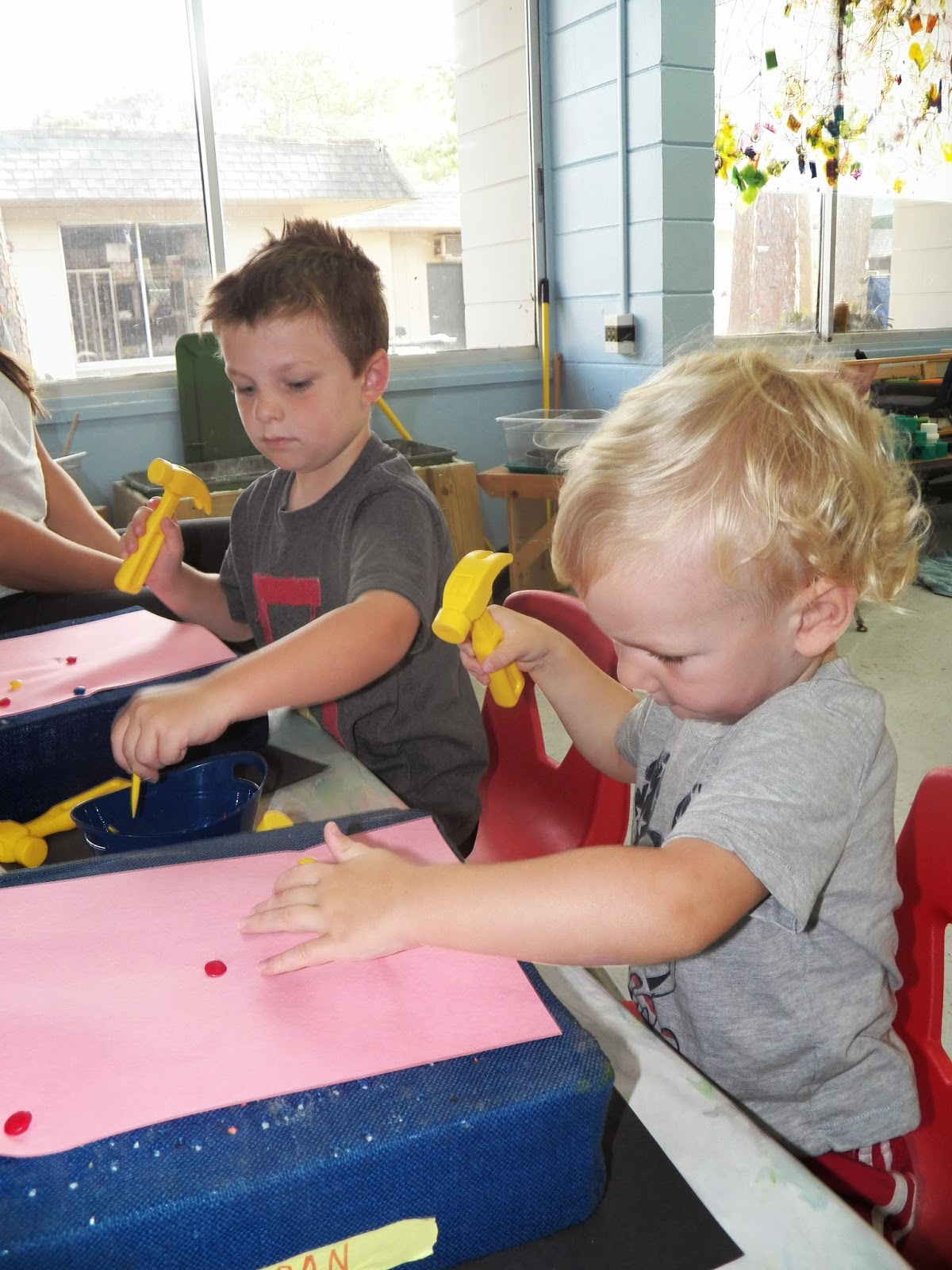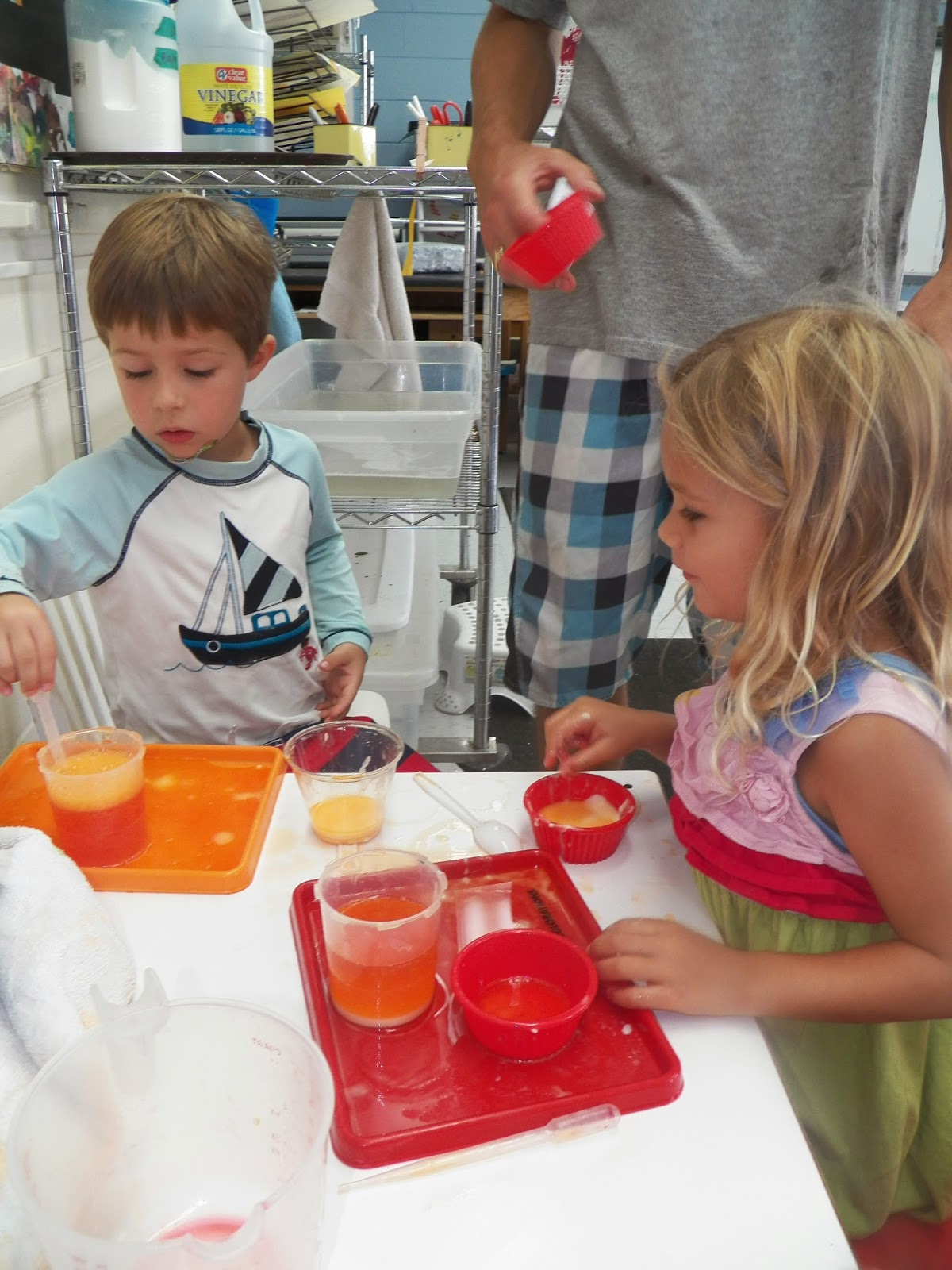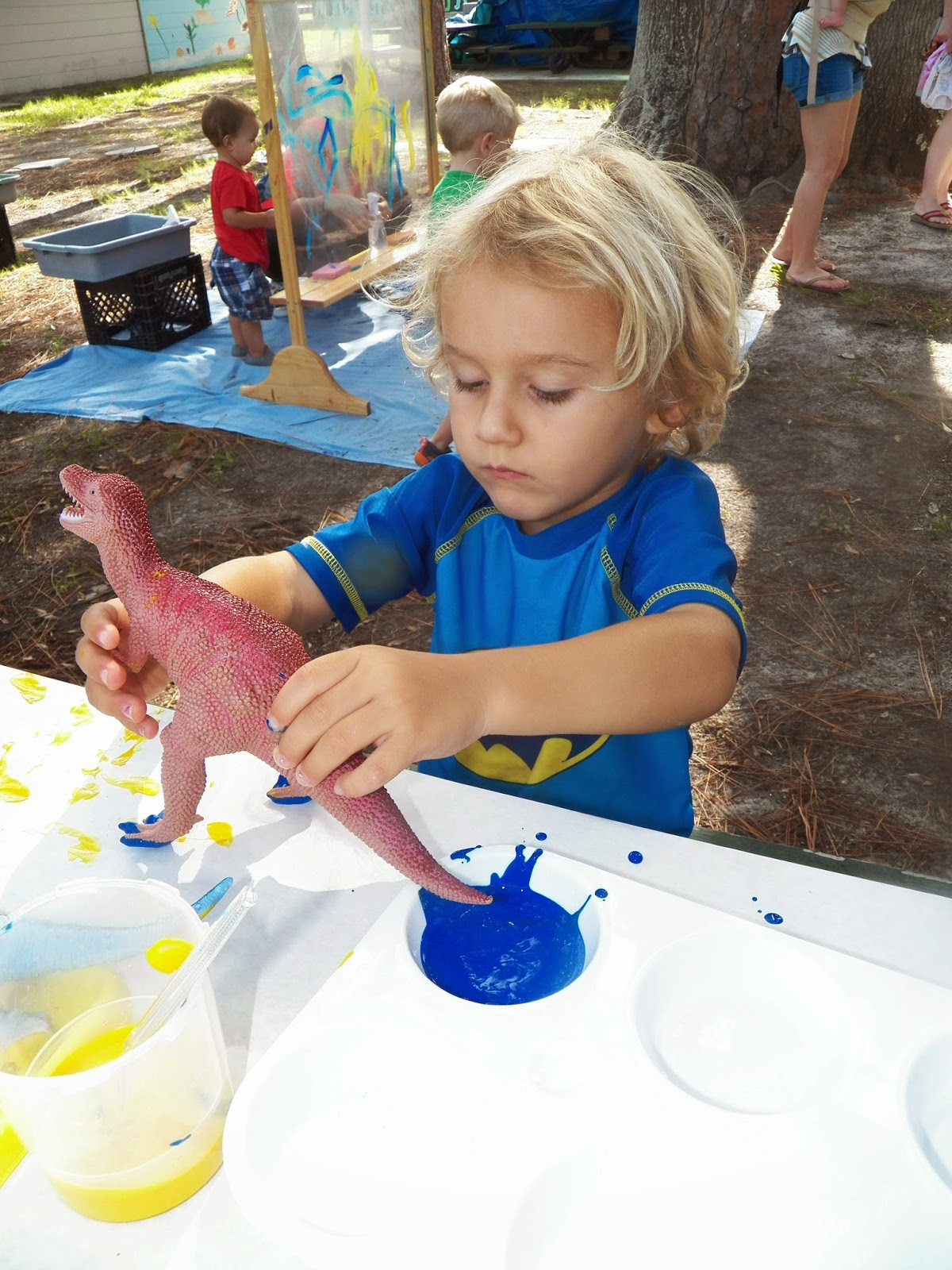What do we really believe about how our children learn?
Are they sponges...an organism that simply absorbs what is around them?
Left alone, are they helpless to learn anything?
Or...
Might they construct their own knowledge through an environment rich with provocative materials and shared social experiences?
This experience was arranged with various "loose parts"... Wood cubes, river rocks, shaving cream tops, and lids of all sizes.
Children are intrigued by collections of materials. They find enjoyment in making order of things.
As you can see in the picture above...this guy has some ideas of his own. He has been experimenting with what the shaving cream tops might hold. Some tops are filled with one item...some with two, and some overflowing with 3 or 4.
The next action he performs is to find a lid to fit over each of the shaving cream tops. I would venture to say that no one told him he had to do this...it just seemed like a good idea.
When you look at the picture above...we see the tongue is out. This is a major tell for this particular child that he is in a state of deep concentration and deep thinking is happening.
He encounters problems or what's called cognitive knots in the teaching world. Some of the lids do not fit over top of an overflowing shaving cream top. So he remedies that with removing enough objects to make the lid go over top.
He continues on with his investigation and encounters another problem...some of the lids are too small. Grandma, who has been sitting nearby and engaging in my favorite Co-Learner method of what I call...a Quiet Presence...
She is handing him different lids to try and is honestly interested herself if they will fit or not fit. She really doesn't know herself.
She is an active participant in his ideas, not taking over but joining in.
Now, when I look at these pictures...I see a child who is very aware of what he needs to learn.
He is industrious, full of important ideas, and enjoys a challenge instead of giving up.
And, I don't want to devalue the role of his "adult". She is supportive in a way that makes him feel what he is doing is important and is interesting work.
She is not the all-knowing adult but instead a co-learner.
Concepts like: The Law of Conservation, Quantity, Volume, and one to one correspondence are ALL being explored...
But is that really the most important point?
We can all agree that children are very perceptive.
They catch on to how you view them quickly and easily.
So, perhaps we should also think about how we view our children.
Seems important to think about the messages we convey to our loved ones about how they learn.
Are they Powerful?
or weak?
Do they have good ideas?
or do they need to be told what's important to learn?
Do our children have their own perspective?
or
Are they cute, innocent, little humans filled with incompetence?
Spend some time observing your child while they play?
Be that quiet presence.
As you gain experience in observing your children and others...
You will begin to see how you can support what they are attempting to learn.
You'll see ideas for building that scaffold that supports your child's construction of her own knowledge.
Uncovering questions and learning that "mistakes" are interesting and something to embrace instead of simply correcting.
A
question is much like a Door,
It
can open “Regions to Explore.
THE
“Answer” is much like a Key,
It
can “Lock” that door so you can’t “See”.
Keep those doors Unlocked.





















































































